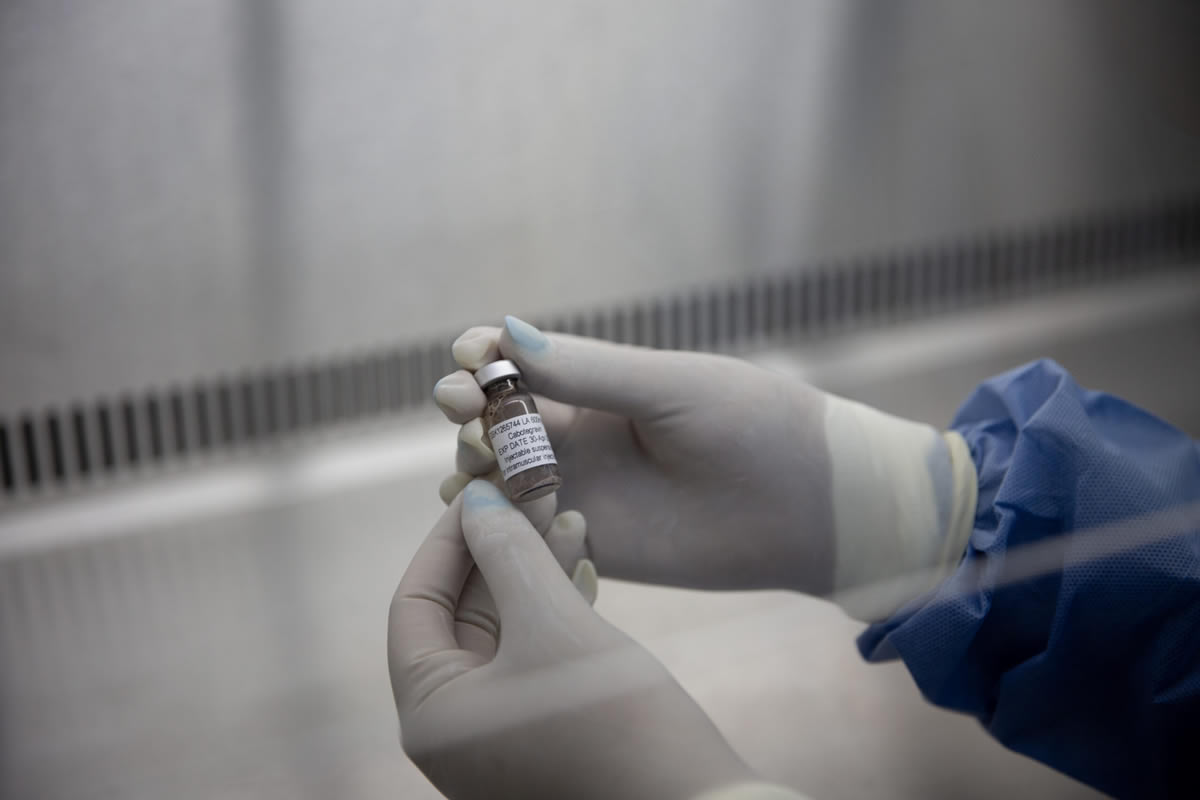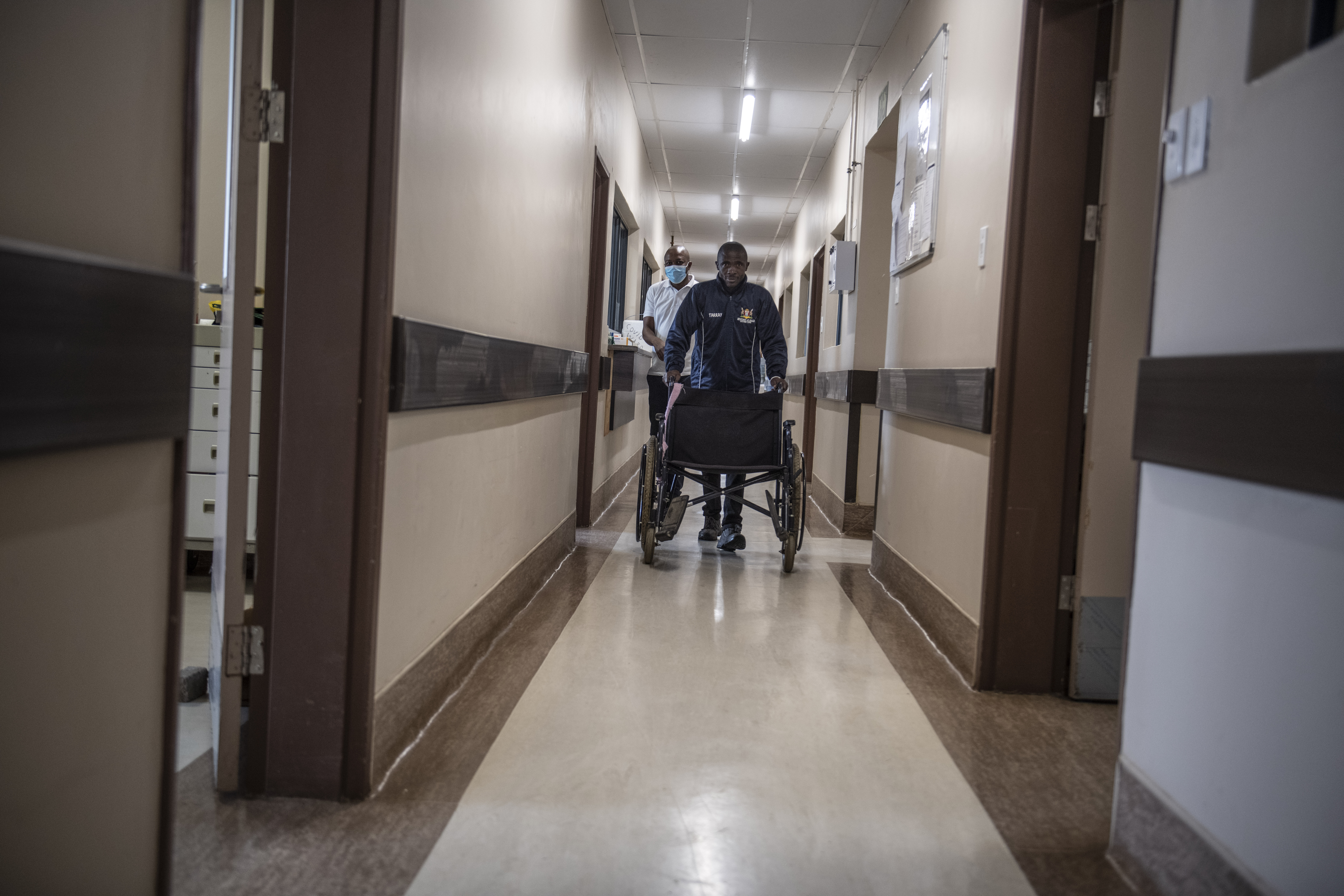© Copyright Bhekisisa Centre for Health Journalism | Privacy Policy | Terms and Conditions | PAIA Manual
The anti-HIV injection will be made in SA: Here are 4 benefits of the...
The two-monthly HIV prevention injection, CAB-LA, will be made in South Africa, at the Indian drug company Cipla’s Benoni and Durban plants. But a start date for production hasn’t yet been announced.
The importance of being Brimey
With a black beret “à la the EFF” and fire-engine red scrubs, Ebrahim Variava is not scared to speak out against the ills of a broken public health system — something that got him suspended from his post as head of internal medicine at the Tshepong Hospital in Klerksdorp in 2020, at the height of the COVID-19 crisis. Meet the doctor for whom patients are always the priority.
Magic melanin: Everything that makes Black skin unique
Black skin has a natural sun protection barrier equal to sunscreen of 13.4 because it contains more melanin. This extract from the book “Black Skin” unpacks the factors that make dark skin unique.
The cost of caring: Zithulele’s Ben Gaunt, one year later
In 2022, after a decade of service, Ben Gaunt, who led a team who transformed Zithulele Hospital in the Eastern Cape from a struggling public health facility into a poster child of excellence, left the facility. The drama, which followed the appointment of a controversial CEO, was well publicised. We spoke to Gaunt one year later.
More bullying? J&J will be investigated for high TB drug prices and abuse of...
South Africa’s Competition Commission will investigate the American drugmaker Johnson & Johnson for the high price it has been charging the country for the tuberculosis medicine bedaquiline, as well as for extending the tablets’ 20-year patent to block cheaper generics from entering the country.
Slash the price by three-quarters — government on anti-HIV jab
The health department says ViiV Healthcare’s non-profit price for their anti-HIV jab, CAB-LA, is four times what it can pay. In 2022, just over 164 200 people in South Africa became newly infected with HIV. Can we afford to go without the shot?
Will the Earth’s changing climate make TB spread faster?
The world is far behind its TB targets. Hoping to reduce TB deaths by 75% by 2025, world leaders have only managed to bring it down by 5.6% so far. Climate change, however, can derail these targets even more. The changing climate increases poverty, overcrowding, and malnutrition, the primary drivers of TB.
How did an otherwise healthy man with a broken leg end up dead in...
The bizarre case from Durban is at least the second such case nationally in the last three years.
Why not enough people with HIV are on treatment — and how a new...
By 2025, South Africa wants 95% of people with HIV who are on treatment to have infection levels so low that they can’t transmit the virus to someone else. But this can only happen if they stick to taking their medication — which is where we’re falling down at the moment. A recent court ruling that allows people to get their medicines from private pharmacies may help.
The boys who lost their manhood
During this initiation season, we look back at what happened in 2013 when bungled initiations cost boys their penises.
From Moshi to Moscow: How a girl from the slopes of Kilimanjaro became Tanzania’s...
In 1969, Esther Mwaikambo became Tanzania’s first female doctor. Today, she is arguably also the country’s most famous. She tells Sean Christie how public healthcare in Africa has changed — and what she wishes for the future.
What goes into your medical aid premium — and what it means for the...
Pooling funds to cover people’s medical bills makes sense — but only if the funds are managed well. Here’s what actuaries and economists look at when calculating your monthly premium — and what it could mean for the proposed National Health Insurance plan.
Over a million SAs have used the HIV prevention pill
More than a million public healthcare users in South Africa had started to use the HIV prevention pill by the end of May, with over half doing so in the past two years, health department data shows. But what must we do to make the pill — and a two-monthly HIV prevention injection — easier to get?
Bending the curve: What a decade-long roll-out of the anti-HIV pill can teach the...
What can the roll-out of a two-monthly HIV prevention injection learn from how the daily anti-HIV pill was introduced? Create demand, make the jab easy to get hold of and ensure it’s not stigmatised, write Wawira Nyagah and Mitchell Warren.
The heat is on: Why climate change will leave you gasping for air
Our burning fossil fuels makes the Earth warmer, causing weather patterns to change. In areas with lots of air pollution, this can make it even harder for people with lung diseases to breathe. And those who have least, will be affected most.
#UNGA78: What the NHI means for universal health coverage in SA
The third day of high-level meetings at the 78th United Nations General Assembly is dedicated to talks on universal health coverage. In South Africa, this means talking about the proposed National Health Insurance fund — something that’s getting people hot under the collar. We’ve put together a one-stop page with information to support constructive debate.

















